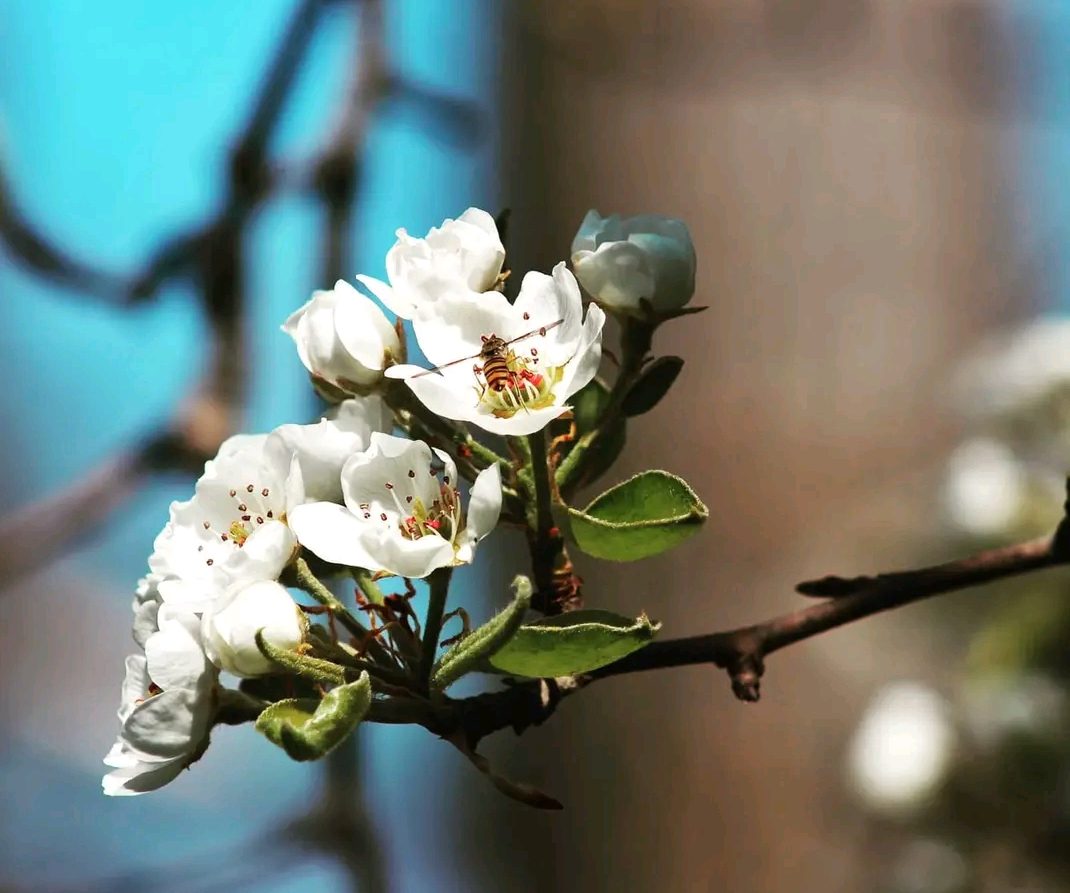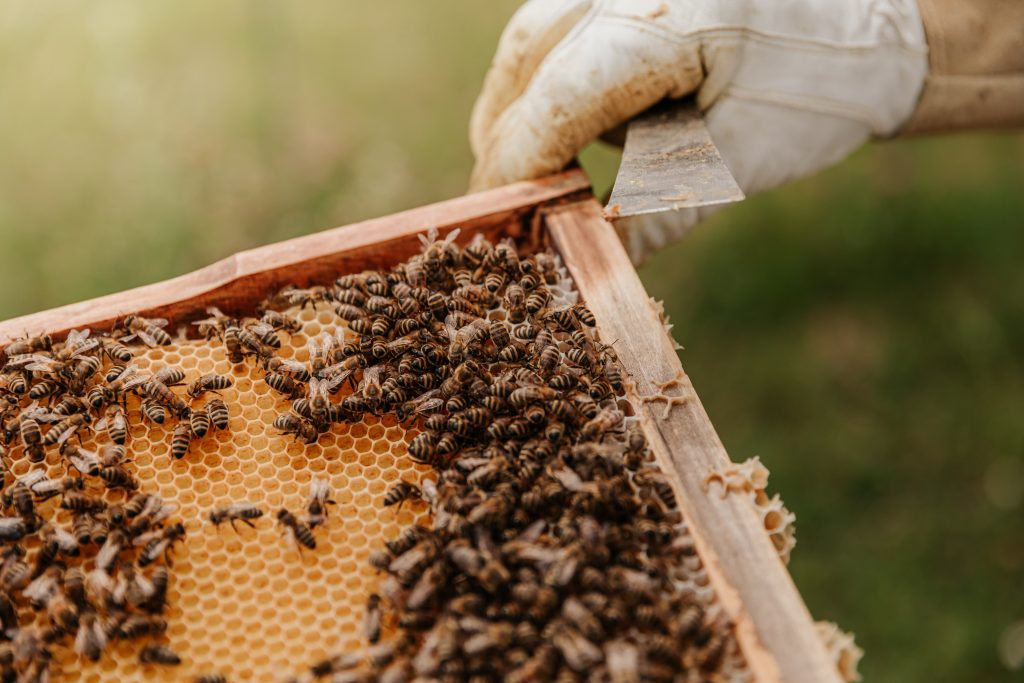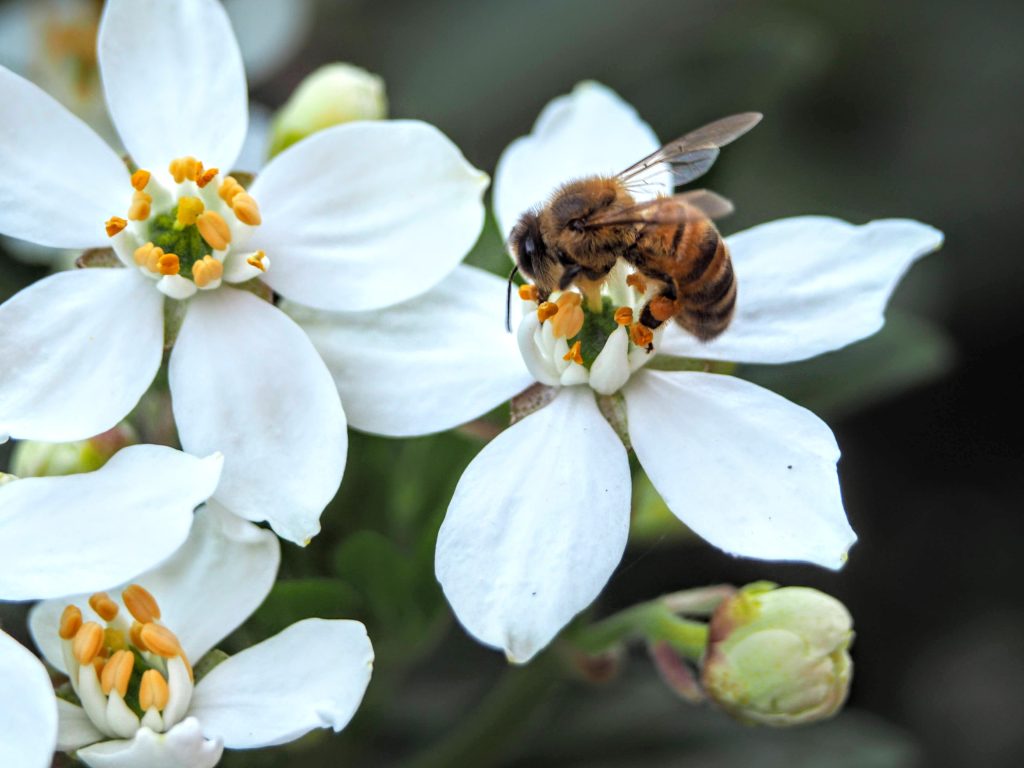
Kashmir, The Heaven on Earth, is a hotspot for harbouring the busiest creature – Bees. While the world is worried over the declining population of bees, there is hope for bees in Paradise. The Valley is home to most plant species which subsequently attract the bee flora of the area. These foraging species of plants in the Kashmir Himalayas serve as a food source for bees. And the bee’s food source is our food security. According to the Food and Agriculture Organization (FAO) of the United Nations, a third of the world’s food production is dependent on bees. The more engaged these tiny creatures remain, the better they allow the crops and plants to reproduce.
In the Biodiversity rich region of the Himalayas are found the family of Apidae, the most dominant group. Social bees (honey bees) and bumble bees are members of this super large family consisting of 57000 species of bees. Naturally, the pollen and nectar-producing floral diversity in the Valley is promoting the practice of beekeeping.

Apiculture, the science of beekeeping, is an old practice in the Vale which is now giving shape to a lucrative business. In Kashmir, you will find four varieties of organic honey. And slowly, the Valley is set to become an emergent market for honey. Besides sustaining and conserving the environment and producing honey, it is now a revenue generation source for local livelihoods.
Read here: Amazing Nature & Wildlife Areas to Visit in Kashmir
The locals’ lives as beekeepers are as engaging as busy bees. The floral region of Kashmir and the pristine environment make it suitable for the bees to contribute to a sustainable environment, rural livelihood and Nature’s well-being. Now, realising their benefits and importance, locals are tapping into the Valley’s abundant natural resources and investing in the beekeeping industry.
Bhalla and Sarthal, located around Bhaderwah town in the Doda district, have plenty of flowering plants – making them the perfect place for beekeeping. Beekeepers in this area have been prosperous because of the flowers that provide nectar for the bees. As a traveller, you can spot these beekeepers and their beehives in the Jammu region’s Poonch, Rajouri, Doda and Kishtwar districts, and Kashmir’s Baramulla and Kuwara districts.

Today, more locals are investing in the beekeeping business as the returns are promising. Generally, a beekeeper fetches around 1 lakh per quintal. And every season, depending on profits, they are installing more and more beehives for greater return. And at the intersection of Nature & Tourism lies honeybee tourism.
Bee tourism, or api-tourism, is a unique way to travel and connect with Nature. By supporting eco-friendly apiaries, travellers can enjoy unique experiences while contributing to the health and well-being of bees worldwide. Taste the original honey procured from native bees while appreciating the scenic beauty surrounding bees’ abodes in Heaven. Become a part of these pollinators’ life. Promote sustainable tourism the same way these bees are promoting sustainable livelihood in Kashmir.
